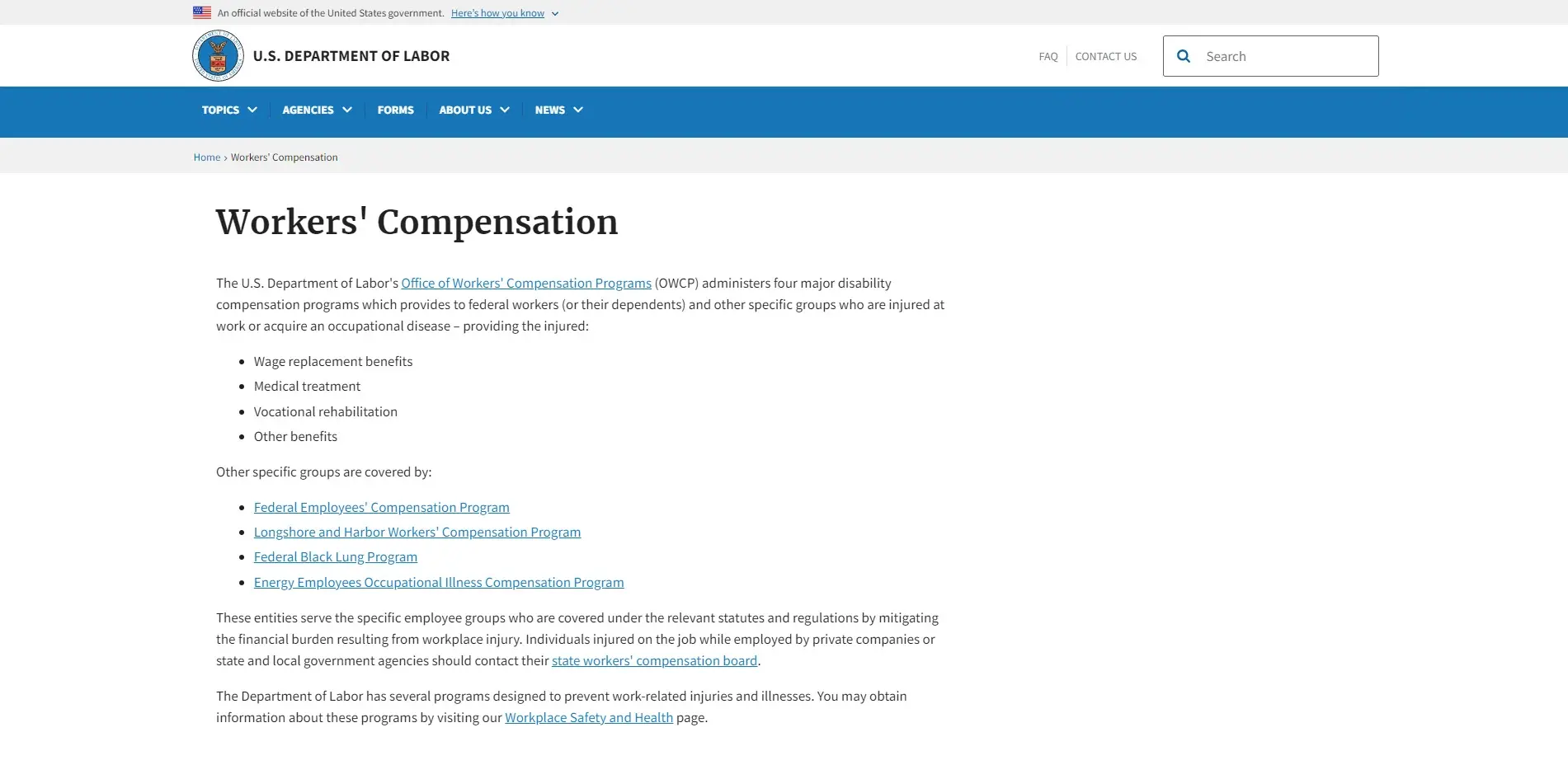There are lots of expenses for eCommerce, such as hosting, hardware, software, web design, marketing, and more. One business expense that’s sometimes overlooked is business insurance. Fortunately, business insurance isn’t a difficult topic to understand and implement in an eCommerce business. In this post, we’ll look at business insurance for eCommerce to help you choose the right insurance policies for your business.
What is Business Insurance for eCommerce?
Most of us are familiar with personal insurance such as life, vision, etc., but what is business insurance? Simply put, business insurance focuses on protecting the business assets from harm caused by the business. This includes physical harm, property damage, and more.
What Types of Insurance Do Businesses Need?
Most incidents for small businesses are covered by general liability, professional liability, and worker’s compensation. Whether or not you need all three will depend on factors such as your employees, business assets, and the specific risks of your business. We’ll look at each type of business insurance to help you decide which is best for your needs.
What Determines Business Insurance for eCommerce Prices?
Prices for business insurance for eCommerce have a wide range due to the vast number of options. Prices range from $500 to several thousand dollars per year. We’ll look at the prices of each as we explore the various types of business insurance. The prices we’ll specify were gathered from several insurance providers, which we’ll list at the end of the article.
Types of Coverage
Coverage is the maximum payout of the policy you’ve selected. The insurance premium will reflect the payout, so the more coverage you need, the more expensive the policy. The cost of that coverage can reduce over time, depending on factors such as the reduction of risks, the amount of time without an incident, etc.
Number, Types, and Location of Employees
You’ll need less insurance if you’re the only worker or if you hire freelancers. If you hire employees, you’ll need more types of insurance. The types of work the employees perform will determine their risk factors. For example, office work is low risk compared to manual labor. If you have remote workers, you’ll also need to follow the laws of the location of the employees.
Location
Regardless of the type of business you have, you’ll need to adhere to the local laws. Local laws will affect the types of policies you need for your eCommerce business. This will, of course, affect the prices based on those laws. Location is also affected by the weather, property prices, etc., so policies will reflect those elements in their prices.
Industry and Situation of the Company
The industry and type of work or products you provide will determine the types of coverage you need. Think of this type of coverage as the potential for damage to others.
For example, A company that doesn’t collect any information or has direct contact with customers will need the least amount of coverage. A B2C eCommerce shop that sells products will need coverage to protect against data breaches. However, they’ll need less insurance than a B2B company that provides resources to large corporations that have an impact on their daily income that ranges in the millions.
Types of Business Insurance for eCommerce

Finally, here’s a description of each type of business insurance. We’ll discuss what each type covers, who it’s for, and the price ranges of each type. Some eCommerce businesses will need multiple types while others will not. Prices range based on several factors, and since all eCommerce businesses are unique, those prices should be used as a starting point.
Here’s an overview of various types of business insurance.
General Liability Insurance
As the name suggests, general liability protects businesses from general liability lawsuits against property damage, bodily harm, and defamation that are caused by employees.
This is for businesses that directly interact with clients, consumers, and customers. This includes businesses that meet with clients, provide in-person services, or sell physical products. For eCommerce, this could include marketing campaigns, product releases, and damage caused by the product or product packaging.
Get General Liability Insurance if:
- You directly interact with clients and customers.
- You go to their location.
- They come to your location.
- If your eCommerce business is sole proprietorship.
- Your employees might cause property damage to the rented office space.
General Liability Insurance Cost
The cost of general liability insurance for eCommerce will depend on the size of the company, the policy limit, the deductible, and the risk factors involved with the company. Sole proprietorships and consulting agencies will see vastly different price ranges, which typically cost between $400-$750 for sole proprietorships, and up to $3000 per year for agencies.
Property Insurance
The coverage for property insurance will vary from one policy to another. In general, it will cover the physical assets of the property, which may include damage to the walls, floors, ceilings, windows, doors, fixtures, furniture, equipment, etc. from water, mold, and more.
Many eCommerce businesses rent office space. Sometimes these spaces are coworking spaces, meaning that multiple companies share the space. Most companies already have insurance on those buildings, so you won’t have to purchase insurance to cover the office space.
If the office space is a traditional commercial property that isn’t shared, insurance might be required to sign the lease. In some cases, the property owners will require property insurance, while others will only require general liability insurance.
Anyone that operates from their own property, such as their home, and allows clients or customers to visit that property should purchase property insurance.
Get Property Insurance if:
- The property owner does not cover it.
- It’s required by the property owner.
- You own the property and clients or customers visit the property.
Property Insurance Cost
The cost of property insurance will vary based on the location and the things that need to be included for the coverage. It will also be affected by the conditions of the area, such as weather risks. Based on all these factors, there isn’t a reliable price range available for eCommerce businesses. Each price must be provided on an individual basis.
Business Owners Policy
A business owner’s policy combines the covers of general liability and property insurance. It usually covers everything those policies cover. If you need both policies, it’s best to get them as a business owner's policy, as it’s often cheaper to get them as a combo.
Get a Business Owner’s Policy if:
- You need general liability and property coverage.
Business Owners Policy Cost
A business owner’s policy usually costs less than purchasing general liability and property insurance separately. The property will need to be assessed in order to get an accurate estimate.
Cyber Liability Insurance
It’s extremely important how a company handles information of its customers, clients, and even visitors. This includes the website, databases, emails, etc. Cyber liability insurance focuses on data used on the internet. We often hear of stolen credit card numbers and other types of stolen information due to security breaches online.
It covers data loss to breaches, hacks, and exploits. Hackers often use data breaches through out-of-date plugins, themes, and poor security to obtain customers’ data. It also covers lost profits caused by downtime and any expenses caused by downtime.
Get Cyber Liability Insurance if:
- If sensitive information passes through your website.
- You collect data from your clients or customers.
Cyber Liability Insurance Cost
Cyber liability is considered a niche policy, so prices can vary widely and there isn’t a lot of information available. The prices seem to range between $500-$22,000 per year based on the types of data the company handles and the risks involved.
For example, a company that doesn’t handle customer information might only need a policy ranging from $500-$1000. As another example, credit card breaches could cost as much as $150 per credit card. Some companies may only handle a few thousand credit cards while others may handle millions of credit cards. Most policies seem to average between $3000-$5000.
Worker’s Compensation Insurance

Worker’s compensation insurance covers medical expenses and a portion of lost wages if an employee gets sick or is hurt in an accident as a result of performing their duties at work. The percentage of lost work that’s covered will depend on the policy.
Worker’s comp is required by law in the US, so it’s not optional if you have employees. It’s regulated at the state level, so the requirements and costs vary from one state to another.
Get Worker’s Compensation if:
- You hire employees.
Worker’s Compensation Cost
The prices of worker’s comp ranges widely from one state to another and it’s priced at $100 worth of payroll. The average is a little over $1.00 per $100 of payroll. The prices will also vary based on the risk of the job, such as office work or manual labor.
Employment Practices Liability Insurance
While on the clock, employees act on the company’s behalf. This means the company is liable for its conduct and the treatment of other employees. An Employment Practices Liability Insurance (EPLI) policy protects your company against employees’ bad behavior.
This protects against any type of lawsuit that could result in hiring, or not hiring, an employee. This covers behavior such as sexual harassment, breach of contract, failure to employ, negligent evaluation, failure to promote, and wrongful termination.
Get Employment Practices Liability Insurance if:
- You hire employees.
Employment Practices Liability Insurance Cost
For small businesses, EPLI typically costs between $800-$4000. Between 10-15 employees usually cost between $1200-$2000 per year. Businesses with 40-50 employees usually cost between $4000-$5000. This is sometimes added to a business owner’s policy, which can add between $300-$500 for small businesses.
Errors and Omissions Insurance (Professional Liability Insurance)
Errors and Omissions Insurance is also known as Professional Liability Insurance. This insurance protects your company from mistakes that impact on another company. This is especially important if your products or services affect how the company generates income or handles sensitive data.
The types of policies and costs will vary depending on the type of industry, the clients, the types of errors, and the potential costs of those errors. For example, a company that handles the payroll of multiple corporations will need a different policy than a company that doesn’t handle sensitive information.
The insurance covers professional negligence or failure to meet the contract, project disputes if the product hasn’t met the project’s specifications, errors and bugs in code that lead to exploits, accidental trademark infringement, mistakes in a printed copy, etc.
Get Professional Liability Insurance if:
- You provide B2B services.
Professional Liability Insurance Cost
Prices for professional liability insurance range from $500-$2000 for small businesses. The prices will vary based on the types of liability damage the company can cause. Companies that can have a huge impact on another company will require a larger policy.
Where to Get Business Insurance for eCommerce
There are lots of business insurance providers that provide the coverage needed for eCommerce. Here’s a list of popular options. Always research a provider and their policies before joining. This isn’t an endorsement, and there are a lot more insurance providers available, so just use this list for information to help you get started. The insurance providers are listed in alphabetical order:
Insurance providers should work with you to choose the best business insurance for your eCommerce business. When purchasing business insurance for eCommerce, talk with an insurance consultant and provide all of your information such as type of business, industry served, type of work or products provided, the number and location of employees, etc. Provide all of the details. It’s better to provide too much information than not enough information. The insurance consultant will suggest the policies that are best for your business.
Ending Thoughts on Business Insurance for eCommerce
That’s our look at business insurance for eCommerce. Business insurance needs for every eCommerce business will vary, but the list will help you understand the insurance that most businesses require. The prices we’ve shown are generalized, and there are a lot of factors involved in pricing insurance policies, so your case might be different. The cost of not having business insurance can easily outweigh the price of a business insurance policy. We highly recommend taking the time to choose the right policy for your needs.
We want to hear from you. Do you use business insurance for your eCommerce business? Let us know about your experience in the comments.
Frequently Asked Questions
Can WordPress be used for eCommerce?
WordPress offers many different ways to build an eCommerce online store for all types of products and markets. Almost 40 percent of all online shops are powered by WooCommerce, a WordPress eCommerce plugin.
Is shared hosting good for eCommerce?
There are several advantages of using shared hosting for eCommerce, like its low cost, security, and user-friendliness. However, if you’re looking for a scalable hosting plan, managed cloud server might be a better choice for you.
How customizable is my ecommerce store?
This depends on the eCommerce tool you use. For example, Magento is 100% customizable, and you can amend just about every aspect. Shopify on the other hand has far fewer customization options.
Can I use hosting for WordPress for an ecommerce site?
Yes, of course. In fact, the platform has some of the best online stores and a range of payment processor plugins on the market.

Randy A. Brown is a freelance writer from east TN specializing in WordPress and eCommerce. He's a longtime WordPress enthusiast and loves learning new things and sharing information with others. If he's not writing or reading, he's probably playing guitar.
View all posts by Randy A. Brown




















